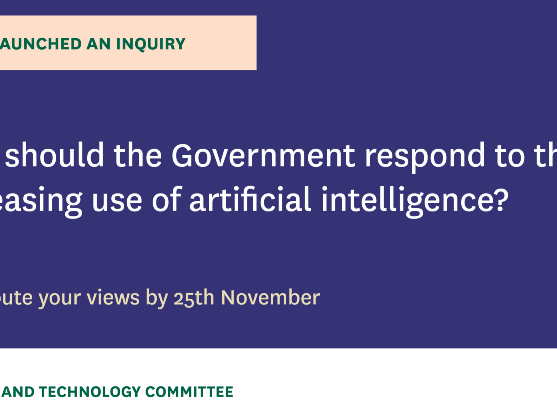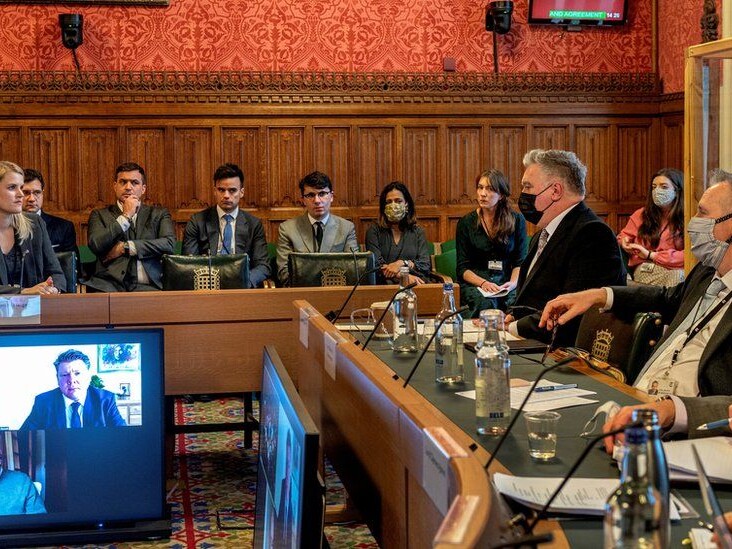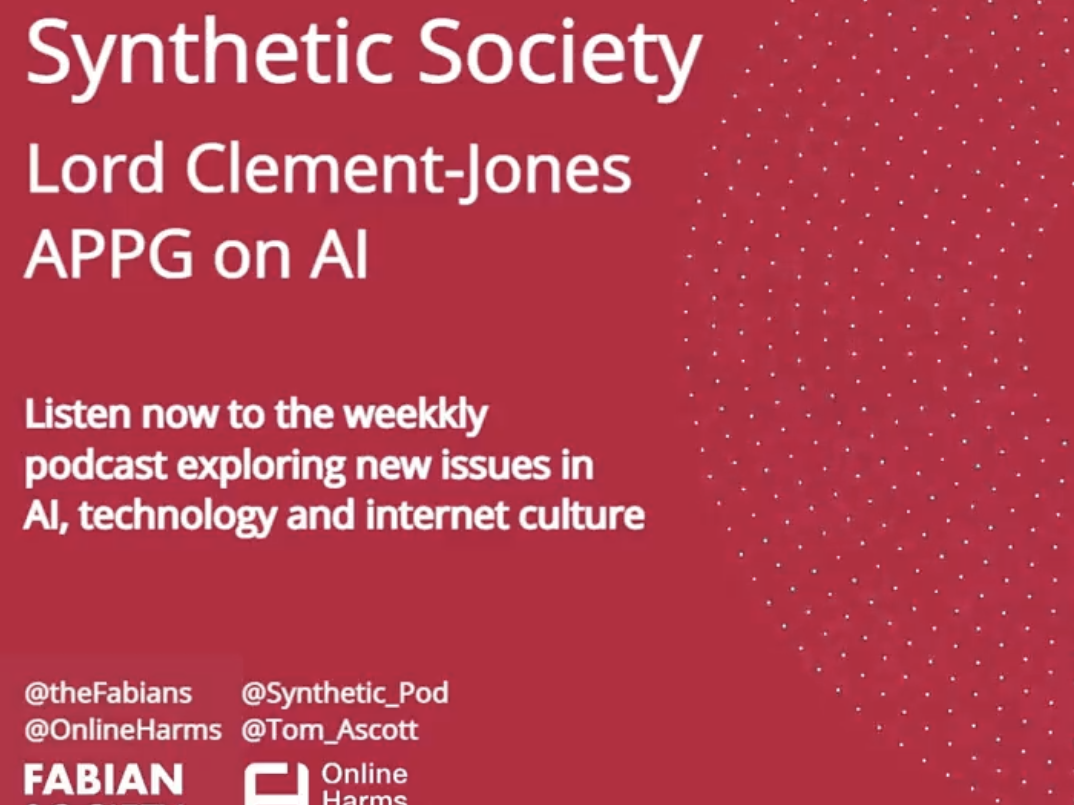Sadly we only had 5 minutes speaking time in the recent Kings Speech debate . Here is an an extended version of my speech which goes into greater depth as to what I believe the Government should be doing in this area if it is to fulfill its growth through innovation agenda and expresses some caveats about how they plan to do this.
When we debated the New government’s proposals in the Kings speech recently the House of Lords gave a particularly warm welcome to Lord Vallance of Balham-formerly Sir Patrick Vallance- as the new Minister of State in the Department. While the Government’s Chief Scientific Adviser we know from the book “the Long Shot” how he played an critical role in the establishment of the UK Vaccine Taskforce, which was set up in April 2020 in response to the COVID-19 pandemic. He was pivotal in the recruitment of Dame Kate Bingham to chair the Vaccine Taskforce and in organizing the overall strategy for the UK development and distribution of COVID-19 vaccines. For that we should be eternally grateful.
I welcome the Government’s growth through innovation agenda and mission to enhance public services through the deployment of new technology and also the concentration of digital functions in DSIT and that it will become the centre for “digital expertise and delivery in government,improving how the government and public services interact with citizens.” in the words of the new Secretary of State, Peter Kyle.
The Government is expanding the department’s scope and size by bringing in experts in data, digital, and AI from the Government Digital Service, the Incubator for AI (i.AI), and the Central Digital Data Office to unite efforts to implement digital transformation of public services under one roof. There is great potential in justice, education, healthcare to name but three areas.
This is crucial particularly in the adoption of innovative technologies and tools in our healthcare for which Liberal Democrats believe there should be ring-fenced budgets. We need to be ensuring interoperability of IT systems too.
They government have committed too to modernising public sector procurement frameworks to enable start-ups and SMEs to drive public sector innovation and better public services. Will , however, clear, transparent framework of standards incorporating ethical principles be established? Public sector adoption is very desirable but requires trust on the part of the public/ and the citizen For instance we need to ensure that citizens can assert their rights when faced with automated decision making or live facial recognition
It has felt, under the previous regime, that universities have been under continual threat from government rather than valued as the engines of knowledge and growth and we need to be far more internationally outward looking, in particular fixing our relationship with the EU- using science and technology to address societal challenges for a more resilient and prosperous future in the words of the Royal Society.
I welcome the new Industrial Strategy Council. Does this mean we can plan for 10 years of stability and opportunity creation in science and tech sector? Successive policy changes to the R&D tax regime over the past several years have created uncertainty and additional red-tape for SMEs, putting at risk the UK’s reputation as a location for innovative businesses.We need to give businesses certainty and incentivise them to invest in new technologies to grow the economy, create good jobs and tackle the climate crisis.
Opening up what can be a blocked pipeline all the way from R & D to commercialisation, from university spinout through start up to scale up and IPO, and crowding in and derisking private investment through the National Wealth Fund, the British Business Bank and post Mansion House pension reforms, are crucial with all the local, regional, national and UK wide aspects, recognizing the importance of innovation clusters and centres of excellence. We need to tackle regional disparities and develop the innovation clusters with greater devolution to combined authorities
Digital Skills and Digital literacy are also crucial but to deploy digital tools successfully we also need a pipeline of creative collaborative and critical thinking skills. A massive skills and upskilling agenda is needed in the face of technology advances. The focus in training should be on lifelong skills grants, reforming the apprenticeship levy, and boosting vocational training and apprenticeships and many of the governments proposals in this respect are welcome.
In this context, as the the chair of a university governing council I very much welcome the Government’s new tone on the value of universities, of long term settlements, and of resetting relations with Europe and international research collaboration.
The role of university research and spinouts is crucial . The Research Excellence Framework has the perverse incentive of discouraging cooperation. We should be encouraging strategic partnerships in research especially internationally. We need to be full throated members of Horizon -the uncertainty has been extremely damaging to collaboration. I hope the government will now commit to joining the European Innovation Council as well
Last year Labour set out its plan for the life sciences.It committed to the investment of £10bn into R&D. Further, the plan said that Labour would see the creation of 100,000 jobs in the life sciences sector by 2030. The document contains a range of further welcome pledges including strengthening the Office for Life Sciences and the Life Sciences Council, and to bring laboratory clusters within the scope of the ‘Nationally significant infrastructure regime’ in England.
We need to ensure Government spending on R&D keeps pace with other nations, and establish a long-term strategy for science, research and innovation that commands cross party support.Research, development and innovation are crucial to driving productivity growth, yet our current levels of R&D investment and productivity lag the G7. I hope this means that we will soon see whether spending plans for government R & D expenditure by 2030 and 2035 match their words.
And disproportionately high overseas researcher visa costs MUST be lowered as Lord Vallance recommended in his Digital Technology Review. UK visa costs are up to 17 times higher than other leading science nations.The Royal Society have called this a “punitive tax on talent”.
But support for innovation should not be unconditional or at any cost. I hope this government will not fall into the trap of viewing regulation as necessarily the enemy of innovation. We need guardrails to ensure that, for example, AI adoption leads to public benefit.
I hope therefore that the reference to AI regulation in the King’s Speech, but failure to announce a bill, is only a timing issue. What IS the Government’s intention especially given an AI bill was heavily trailed in the media?
With AI technologies continuing to develop at an exponential rate, clarity on regulation is needed by developers and adopters.There is the question too as to what extent the new government will depart from the current sectoral approach to regulating AI and adopt a cross-sectoral approach. What does the King’s Speech reference to regulating “the most powerful artificial intelligence models” actually refer to? Will the government be launching yet another consultation on AI regulation?
There is no doubt we need to seize the opportunities of AI, whilst making sure we mitigate the risks of AI, ensuring ethical standards for AI development and use are adopted.
Liberal Democrats believe we need to create a clear, workable and well-resourced cross-sectoral regulatory framework for artificial intelligence that:
- Promotes innovation while creating certainty for AI users, developers and investors.
- Establishes transparency and accountability for AI systems in the public sector.
- Ensures the use of personal data and AI is unbiased, transparent and accurate, and respects the privacy of innocent people
The government in particular should lead the way in ensuring that there is a high level of transparency and opportunity for redress when Algorithmic and automated systems are used in government. I commend my new private members bill (the Public Authority Algorithmic and Automated Decision-Making Systems Bill) to it!
The government should also negotiate the UK’s participation in the Trade and Technology Council with the US and the EU, so we can play a leading role in global AI regulation, and we should work with international partners in agreeing common global standards for AI risk and impact assessment, testing, training monitoring and audit.
As regards AI regulation in the Kings Speech itself we are promised a Product Safety and Metrology bill which could require alignment of AI driven products with the EU AI Act which seems to be putting the cart well in front of the AI regulatory horse.
We do need however to ensure that high risk systems are mandated to adopt international ethical and safety standards.At the same time in In this age of IOT we should require all suppliers to provide a short, clear version of their terms and conditions, setting out the key facts as they relate to individuals’ data and privacy.
As regards the creative industries there are clearly great opportunities in relation to the use of AI but there are also challenges and big questions over authorship and intellectual property and many artists feel threatened-the root cause of the recent Hollywood writers and actors strike. What is the government’s approach?
We need to establish very clearly that Generative AI systems need a licence to ingest copyright material for training purposes-just as Mumsnet and the New York Times are asserting- and that there is an obligation of transparency in the use of data sets and original content.
Lord Vallance is on record as wanting certainty in the relationship between IP rights and generative AI for innovator and investor confidence. And this should be the case for for creatives too. Copyright content needs to be properly remunerated by the tech platforms. The bill needs to make clear that platforms profit from content and need to pay properly and fairly, on benchmarked terms and with reference to value for end users when content is use for training Large Language Models.
And when will the government set up the promised new Regulatory Innovation Office? This was promised as an organisation to help “regulators to update regulation, speed up approval timelines and co-ordinate issues that span existing boundaries”. and as a “pro-innovation body” designed to “set targets for tech regulators, end uncertainty for businesses, turbocharge output, and boost economic growth”. We need in particular to know whether it will replace the Digital Regulators Cooperation Forum.
We must also ensure we have the right climate for FDI. The Harrington Report called for a new Business investment Strategy for the Office for Investment. Despite the previous government’s Life Sciences Vision we have seen pharma company Eli Lilley pulling investment on laboratory space in London because the UK “does not invite inward investment at this time”. Astra Zeneca decided to build its next plant in Ireland because of the U.K.’s “discouraging” tax rate.
We also need to modernise employment rights to make them fit for the age of the gig economy,including by establishing a new ‘dependent contractor’ employment status in between employment and self-employment, with entitlements to basic rights such as minimum earnings levels, sick pay and holiday entitlement.
There is a great need for need for greater diversity and inclusion in the AI workforce and science and technology more broadly. Only one in four senior tech employees in the UK are women, and only 14% from ethnic minorities.
I hope the Government too is fully committed despite its growth agenda to a full hearted support for the Competition and Markets Authority in the use of its powers under the new Digital Markets Act. I welcome the CMA’s market investigation into Cloud Services and its reassurance that it is looking broadly at the anti-competitive practices of the service providers such as vendor lock-in tactics and non-competitive procurement.
Then again how will the government kickstart better progress on Project Gigabit? Given the competitive model for rollout of broadband services that has been chosen, investors in alternative providers to the incumbents need reassurance that their investment is going onto a level playing field and not one tilted in favour of the incumbents.
Also in terms of vital cross departmental working, joining up government on Science and Technology policy we need to know what the role will be of the National Science and Technology Council and what are its key priorities.
There no mention in Labour’s manifesto on the potential impact of AI on the workplace.The TUC and Institute for the Future of Work are among those who have called for new legislation to create further legal protections for workers and employers in relation to the use of AI. The government should introduce safeguards against the invasion of privacy through surveillance technology and discriminatory algorithmic decision-making in the workplace along the lines of the TUC draft bill and algorithmic impact assessment along the lines of IFOW’s proposals.
The Government’s will also need to decide how to follow up on the recommendations of recent key Reports such as
- Professor Dame Angela McLean’s Review of Life Sciences
- The Vallance Review of Pro-innovation Regulation of Digital Technologies
- The Independent Review of Research Bureaucracy by Professor Adam Tickell
- The Independent Review of the UKRI by Sir David Grant
- The Independent Review of the UK’s Research, Development and Innovation Landscape by Sir Paul Nurse
- The O’Shaughnessy Report on Clinical Trials
- The Independent Review of the Future of Compute by Professor Zoubin Ghahramani FRS and
- The Independent Review of University Spin-out Companies by Professor Irene Tracey and Dr. Andrew Williamson
More broadly it will need to set out its approach to the science and technology framework for DSIT set out by the previous government in 2023 with its 10 priority areas Will this be revised? If so they need to set measurable targets and key outcomes in the priority areas. The government will also need to take a clear view on the key technologies we should be assisting in developing and commercialising
Then there are the pre existing financial commitments in the science and technology field. The Chancellor has said she will be checking all the previous government’s commitments for affordability. Which of the previous Government’s financial commitments will she confirm? For instance
The £7.4 million upskilling fund pilot to help SMEs develop AI skills.
Investing up to £100 million in the Alan Turing Institute over the next five years (up from £50 million)
The £100 million investment by the British Business Bank into ICG,in respect of the Long-term Investment for Technology and Science (LIFTS) initiative
The £1.1 billion funding for 65 Centres for Doctoral Training (CDTs) through the Engineering and Physical Sciences Research Council (EPSRC), covering key technologies like AI and engineering biology.
As regards the bills in the Kings Speech I look forward to seeing the details but the Digital Information and Smart Data bill does seem to be heading in the right direction in the areas being reinstated. The retention and enhancement of public trust in data use and sharing is the overriding need so that the potential of data can be unleashed through better trusted sharing of data. It is really important that we do more to educate the public about how and where our data is used and what powers individuals have to find out this information
I hope other than a few clarifications, especially in the research area, and in terms of the constitution of the ICO we are not going exhume some of the worst areas of the old DPDI bill and we have ditched the idea of a Brexit EU divergence Dividend by the watering down of so many data subject rights.
| Will the Government give a firm commitment to safeguard our data adequacy with the EU? Will the bill introduce the promised ban on the creation of sexually explicit deepfakes? |
I also hope that the Government will confirm that the intent of the reinstated Digital Verification provisions is not compulsory national Digital ID but the creation of a market in digital ID providers that give choice to the citizen.
Given that LinesearchbeforeUdig, or LSBUD is claimed to already achieve the aims of NAUR, to be more widely used than the National Underground Assert Register NUAR and be more cost-effective, I hope also that Ministers will meet LSBUD and provide us all with much greater clarity around these proposals.
I hope that we can include other positive spects of the late unlamented DPDI Bill in the bill: More action on online fraud, digital identity theft, deepfakes in elections Misinformation and disinformation, misogyny as a hate crime, there is quite a list of possibilities. Together with new models of personal data control which were advocated as long ago as 2017 with the Hall Pesenti review, especially through new data communities and institutions and an enhanced ability to exercise our right to data portability, especially in real-time and more regulatory oversight over use of biometrics and biometric technologies.
I of course welcome the pledge to give coroners more powers to access information held by technology companies after a child’s death AND to banning the creation of sexually explicit deepfakes.
As regards the Cyber Security and Resilience Bill, events of recent days have made it clear we are not just talking about threats from bad actors. It reminds us how dependent we are on just a few overly dominant major tech companies. With Microsoft and AWS enjoying a combined UK market share of around 70-90%, according to the Competition and Markets Authority’s own research, the lack of competition presents a serious concerns for our nation’s security and resilience. There needs to to be a rethink on critical national infrastructure such as cloud services and business software which are now essential public utilities and also how we are wholesale replacing reliable analogue communication with digital systems without backup.
In the bill I hope will we see the long awaited amendment of the Computer Misuse Act to include a statutory public interest defence, as called for by Cyber Up, to allow white hat research into computer systems as the Vallance report recommended. The rules for computer evidence must be changed too. We must have no more Horizon scandals!
27th November 2022
AI Governance: Science and Technology Committee launches enquiry
6th April 2021






